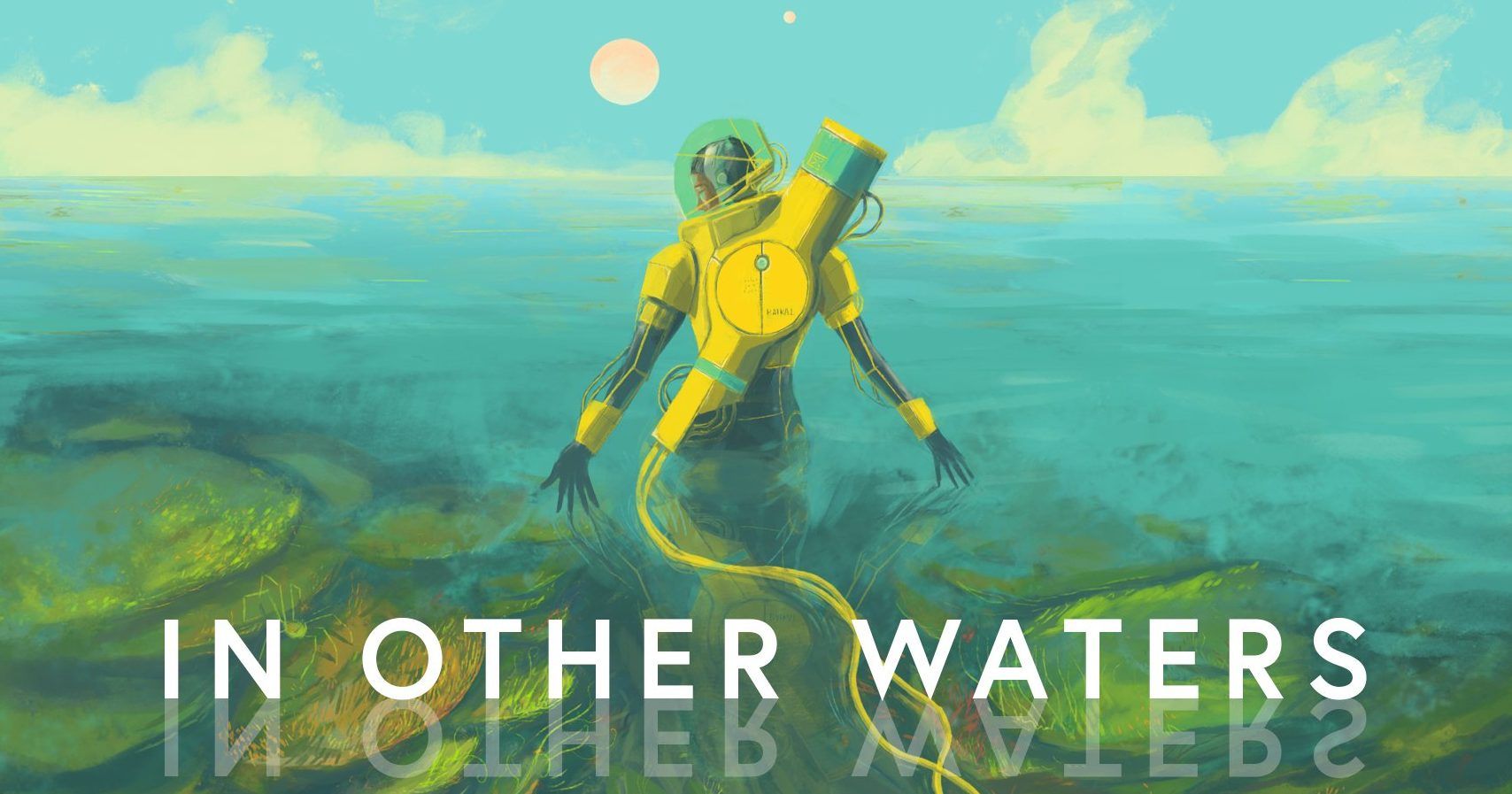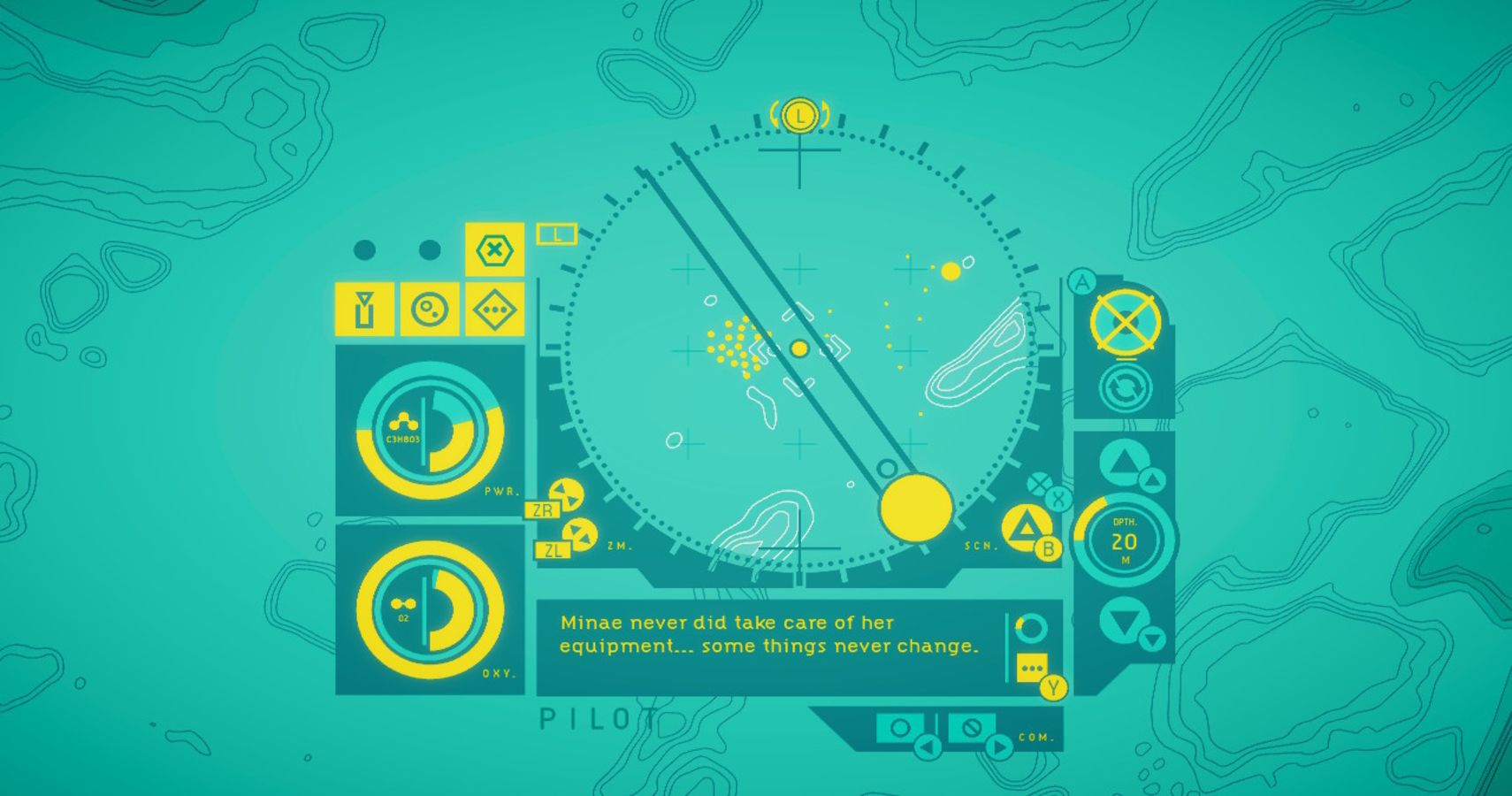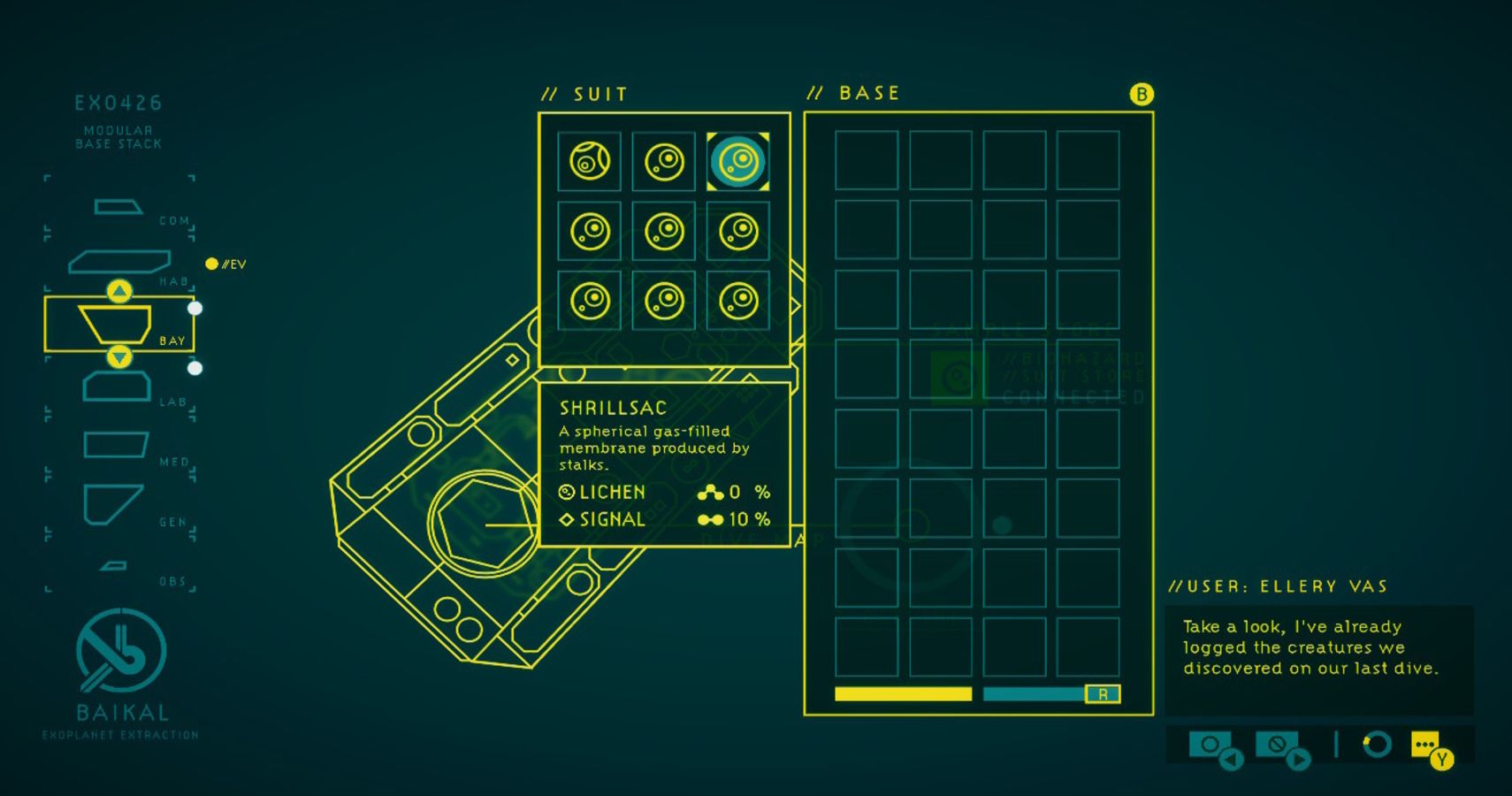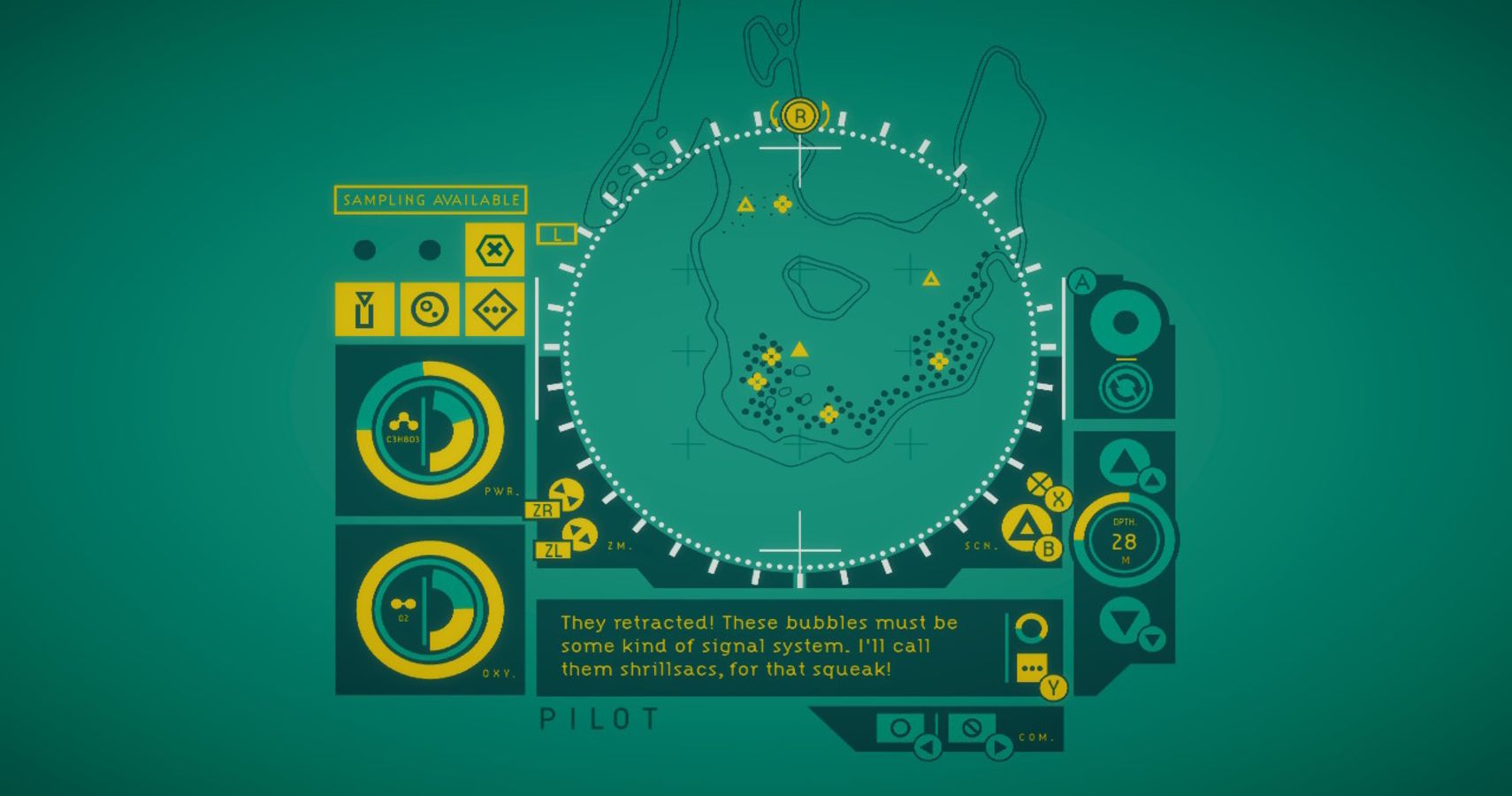It's hard to determine what genre accurately describes In Other Waters. Ostensibly, it's a narrative, exploration game akin to something like No Man's Sky or Outer Wilds. The big difference is that instead of being able to take in the sights, your view is limited to an overhead radar screen. It's astonishingly minimalistic and very strange.
In Other Waters will likely not be a game for everyone, but those who appreciate a good contemplative science fiction tale may find a lot to love while venturing through this unusual ocean.
Making Contact
The player technically isn't the main character of In Other Waters. You control an artificial intelligence that resides inside a technologically advanced diving suit. The person inside the suit is Dr. Ellery Vas, a scientist who has traveled to the planet Gliese 667 Cc - which is apparently an actual planet that's been categorized as a "super-Earth" - in search of her colleague Minae, who has completely vanished. Minae was apparently conducting some top-secret research as no one seems to know where she went or what she found. It's your job as a hyper-intelligent sentient A.I. to guide Dr. Vas along the waters of Gliese as she discovers new lifeforms and tries to retrace her old friend's footsteps.
It's safe to say that this is not a fast-paced game. This is very much a methodical, meditative journey as you lead Vas from spot to spot while trying to keep her alive. The majority of the narrative is told through the musings and spoken thoughts of Vas as she comes across different forms of alien flora and fauna. The writing is quite good and Vas is a likable character who is both very caring and curious about Minae, the planet and its inhabitants, and your existence as a fully functioning and free-thinking A.I.
Steady As She Goes
The player has several duties that they need to perform to help navigate Dr. Vas across the vastness of Gliese 667 Cc's ocean. You will scan the area, which reveals traversable paths and new species. Vas will study these aliens, and then you'll point her towards the next point on the map. You'll also gather plants, monitor her oxygen levels and the suit's power, and as the game progresses, there will be other tasks to perform that will aide Dr. Vas on her voyage.
And that's the game for the most part. You scan, Dr. Vas logs her research, and we learn more about her life, the beings of Gliese, and the state of the universe at large. One thing I liked was the way research tied into the gameplay. Vas can gather research samples and those become part of your inventory. These can then be used like consumable items. Some can be expended to add more power to the suit, while others can clear out plantlife to make new paths or make more plantlife resurface in order to block rough underwater currents. The way they're described adds more flavor to what should be a traditional in-game use of items and helps to build the world even further.
In fact, if there's one thing In Other Waters doe well, it's world-building. Every bit of description helps paint a good mental picture of what Vas is seeing. You're basically living life vicariously through her eyes and her reactions dictate how you should approach things as you both travel forward.
It is rather disappointing that we don't actually get to see any of these new alien lifeforms, as your view of the action is restricted to that limited radar screen. Staring at the same screen for hours can become a little dull. The color palette changes as you enter new sections of the game, but various menus and screens are all the scenery that you'll get to view. But to help with the game's intention of feeding your imagination, there's some excellent audio design that helps sell the sounds of the aquatic lifeforms and habitats that Vas discovers. This may not be a feast for your eyes, but the developer does everything it can to stimulate your ears and your mind.
I played In Other Waters on the Switch, and I would probably recommend getting the version on PC instead. The Switch version controls fine, but navigating the various menus and screens seems like it would be easier to handle with a mouse and keyboard. Having to switch between the radar interface and inventory using the L and R buttons and use other buttons to perform suit functions felt clunky and awkward. Plus, considering how graphically simple this game is, it should be able to be run on even the weakest of computers. But, if you don't have access to a PC, playing In Other Waters on the Switch is still more than adequate.
Under The Sea
This isn't a game where you need to be concerned with quick progression. It's fully intended to be slow, kind of like how an actual scientific research expedition would be. For the most part, it works well due to the strength of Vas' dialogue and the descriptions of the alien world. Much like a good book, it's easy to imagine what Vas is seeing, which can be just as enriching as seeing it for ourselves.
If the idea of staring at a radar screen, reading the descriptions of aquatic alien creatures, and spending time with an inquisitive scientist doesn't sound like your gameplay cup of tea, then you might not get much out of this. For those looking for a thoughtful science-fiction story, In Other Waters will certainly give you enough to let your imagination go wild.
A Switch copy of In Other Waters was provided to TheGamer for this review. In Other Waters is available on Nintendo Switch and PC.





